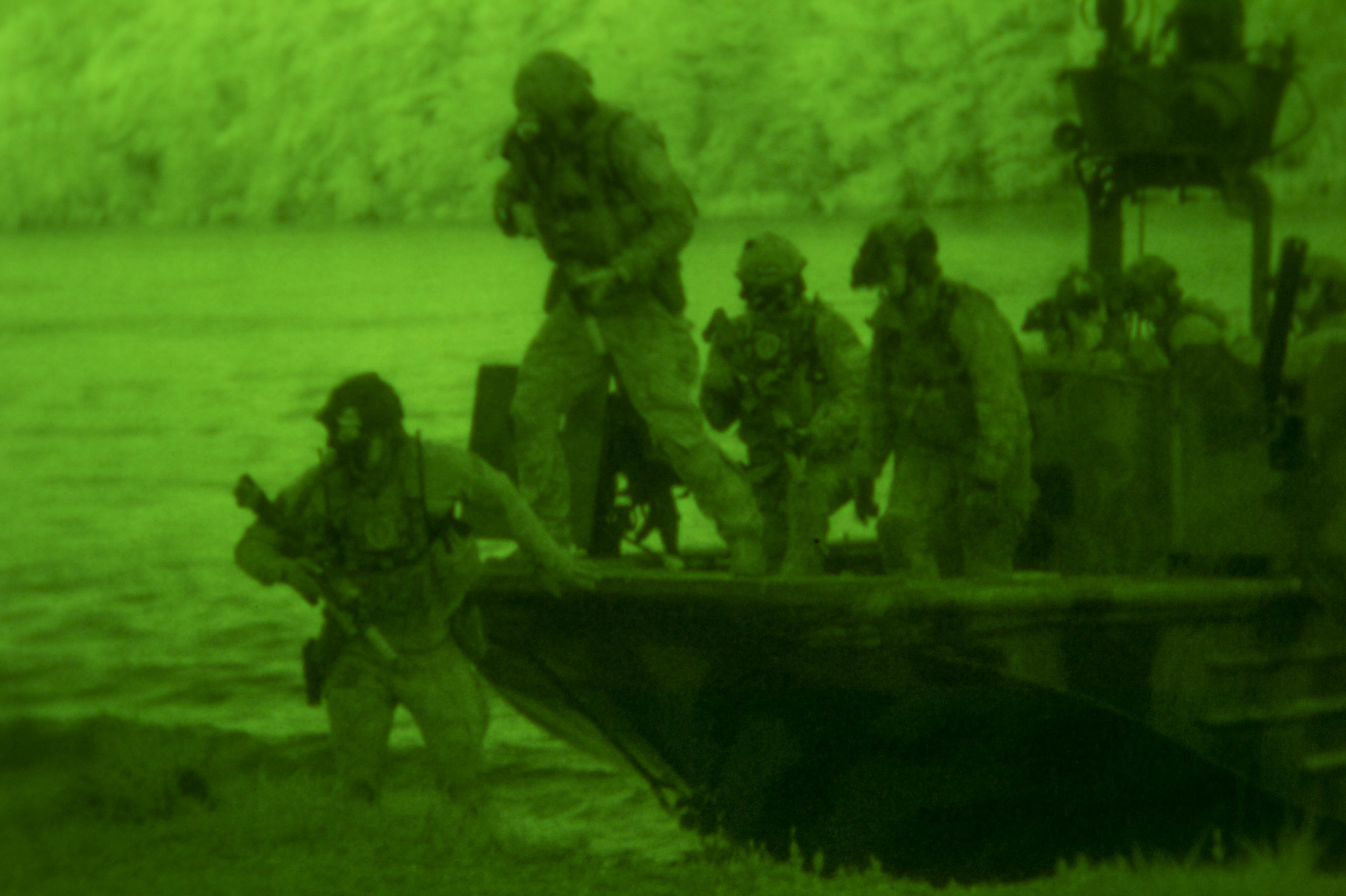
Forty percent of U.S. Special Operations Command is now aligned to meet the challenges of great power competition, a shift that means the command needs modernized intelligence, surveillance and reconnaissance hardware and software, and electronic warfare defenses, its commander told lawmakers Thursday.
Army Gen. Richard Clarke pointed to the standing up of a Special Operations task force to counter Chinese information operations in the Indo-Pacific as an example of the new alignment. “China works very well in that space,” he said. The idea behind the task force “is to tamp down some of the disinformation” China spreads about its own activities, in addition to those of the United States and its allies and partners.
He said task forces like that were allowed under special authorities granted to the command for unconventional warfare.
Looking at equipment needs, Clarke told the Senate Armed Services Committee, “we have to modernize our precision strike, ISR and data” collection and analysis “to see and sense the battlefield.” He stressed the need to update electronic warfare requirements for special operators “to reduce the possibility of them being targeted” by friendly forces.
On counterterrorism, where most of the command’s efforts remain focused, acting Assistant Secretary of Defense for Special Operations and Low-intensity Conflict Christopher Maier said that “fight is not over.”
When questioned about the Trump administration decision to pull 700 service members out of Somalia, he said, there was “a significant downside” to the move that affected counterterrorism work in a number of countries around the Horn of Africa.
On Afghanistan, Clarke said American special forces and other service members “are critical to the success” of its security forces in their struggle with the Taliban. Although the Taliban has not attacked American forces since its negotiators signed an agreement with the United states, it “has not upheld what it said it would do.” Clarke mentioned attacks not only on Afghan security forces, but those carried out against political leaders, educators and other civilians.
The Biden administration is reviewing whether it should stick to the agreement with the Taliban and remove all American forces by May 1.
At the same time, it is also reviewing the new special operations and low-intensity conflict stand-alone organization, with its service-like secretary reporting directly to the secretary of defense, Maier said. He added there are now 40 persons assigned to the proposed secretariat, but “at this point it is not at the point or irreversible momentum.”
On the command’s comprehensive review of what causes may underlie reports of violence, drug use, other criminal behavior and misconduct within the special operations community, Clarke said the 16 recommendations “focus on over-employment” that led to a “detriment of leadership and accountability.” As the report noted, the high operating tempo, reduction of training and assessment time and fewer opportunities for leadership development contributed to the breakdown of behavior and ethics.
“It’s about engaged leadership,” Clarke said.
The review was completed early last year.
Clarke told the committee members several times during the hearing how the command is encouraging members and families to use mental health services and counseling available to them to ease the pressures they are experiencing through repeated deployments.
On reducing deployments, Clarke said the command has cut the number of service members assigned to forward headquarters and restructured the number needed for different missions.
Army Gen. Paul Nakasone also testified at Thursday’s hearing. Nakasone, the leader of U.S. Cyber Command and the director of the National Security Agency, said the massive Solar Winds and Microsoft hacks, show “a level of sophistication we haven’t seen before” from Russian and Chinese hackers.
He told the panel that the command and the agency “can’t see all the data” because they do not operate domestically. “Our adversaries understand our laws” and exploit the gap in monitoring and time between intelligence gathering overseas and the FBI’s ability to move quickly to get a warrant to stop hacks domestically.
He called the gap a “blind spot,” particularly if private companies don’t realize they have been hacked or are reluctant to admit they have been hacked.
Nakasone said he was not asking for authorities for the command or NSA to operate domestically, but wants the administration and Congress to look at existing policies and laws to raise “the risk calculus” for Russian or Chinese hackers, or other intruders.
“Our adversaries are not going to stop stealing intellectual property, identity” unless changes are made that protect individual privacy but strengthen security, he said.
Sen. Mike Rounds (R-S.D.) said, “we’re not technically adept” at closing that gap that can endanger critical infrastructure, as what happened to Ukraine’s power grid.





